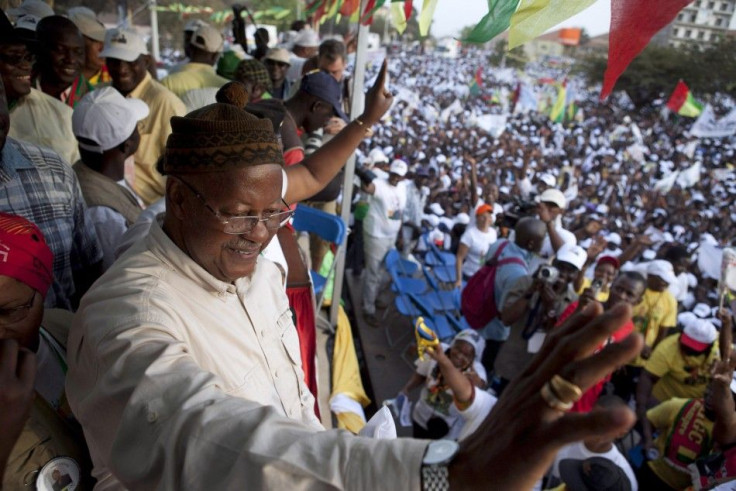Guinea-Bissau: Drug Trafficking On The Rise In West Africa's Narco-State

Drug trafficking in the small West African nation of Guinea-Bissau has spiked since the nation's civilian government was overthrown in April, according to the United Nations.
The Security Council is considering calling an emergency meeting in an attempt to bring constitutional order back to the failed state, which, in the past few years, has become the model of West Africa's narcotics problem.
"The members of the Security Council condemned the continuing interference of the military in politics and expressed their concern with reports of an increase in drug trafficking since the April 12 coup d'état," the Security Council said in a statement on Tuesday.
This doesn't come as much of a surprise.
Prior to the coup, Prime Minister Carlos Gomes Jr. was reportedly making backroom deals with the Angolan military in an attempt to purge his nation's armed forces of corruption. Gomes had already pushed to reduce the size and power of Guinea-Bissau's military, so fearing that bribes and narcotics payments would be shut off, the generals overthrew the state, placing Gomes and President Raimundo Pereira under arrest.
Guinea-Bissau has been a narco-state for nearly a decade (the Guardian, in 2008, said it was the world's first narco-state).
The 88 islands off the coast of Guinea-Bissau are a prime drug transit point between South American and Europe. Cartels, mainly from Colombia, fly small planes across the Atlantic and unload cargos of cocaine, heroin and amphetamine on the un-policed Bijagos archipelago. Local fishermen dealing with rising fuel costs have become drug mules, shipping narcotics to Western Europe, which gets at least a quarter of its cocaine from West Africa, according to the United Nations Office on Drugs and Crime.
One of the poorest nations in the world, Guinea-Bissau under Gomes had begun to stabilize its economy and in March -- one month before the coup -- the International Monetary Fund said that the "growth outlook for 2012 is favorable," thanks in part to an "exceptional" cashew harvest.
But government instability and the drug trade, which brings with it institutional corruption, has shackled the population. The nation is 176 out of 187 on the U.N. Human Development Index, there are serious energy and water problems and the average person lives on about a dollar a day.
However, an estimated $2 billion a year -- twice Guinea-Bissau's GDP -- comes into the country from the drug trade under the eyes of the military, whose leadership are considered "drug kingpins" by the U.S. government, according to the New York Times.
Antonio Maria Costa, then the executive director of the U.N. Office on Drugs and Crime, described the scene in the capital of Bissau to the Guardian in 2008:
When I went to Guinea-Bissau, the drug wealth was everywhere. From the air, you can see the Spanish hacienda villas, and the obligatory black four-wheel-drives are everywhere, with the obligatory scantily-clad girl, James Bond style. There were certain hotels I was advised not to stay in.
The Security Council believes that this puts citizens at risk, and it is ready to call in the African Union, the European Union, the Economic Community of West African States, the Community of Portuguese Speaking Countries and neighboring West African nations to try to bring order to a country that hasn't had a leader complete a full term in office since its independence.
© Copyright IBTimes 2024. All rights reserved.





















